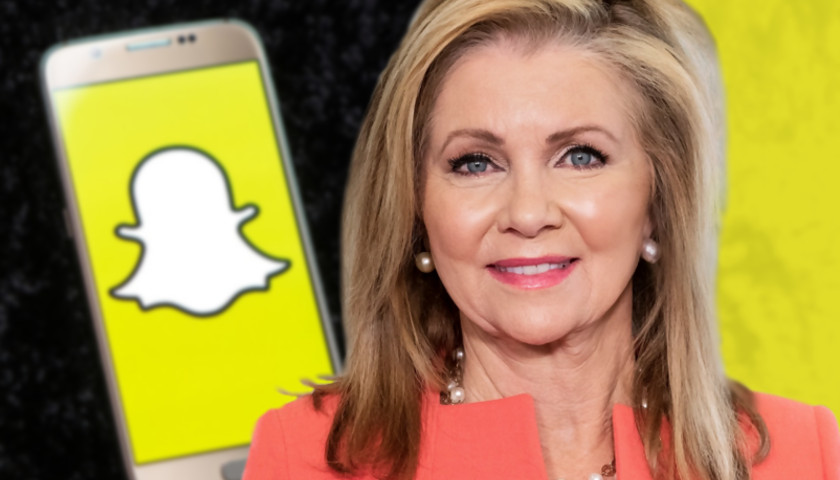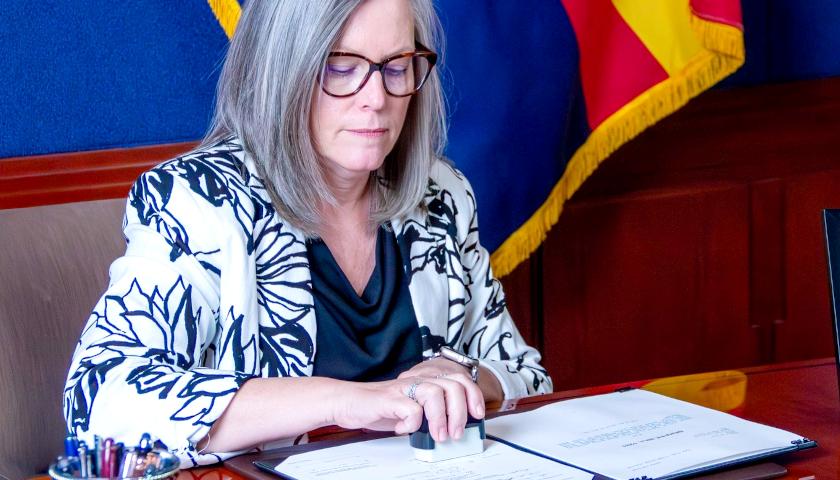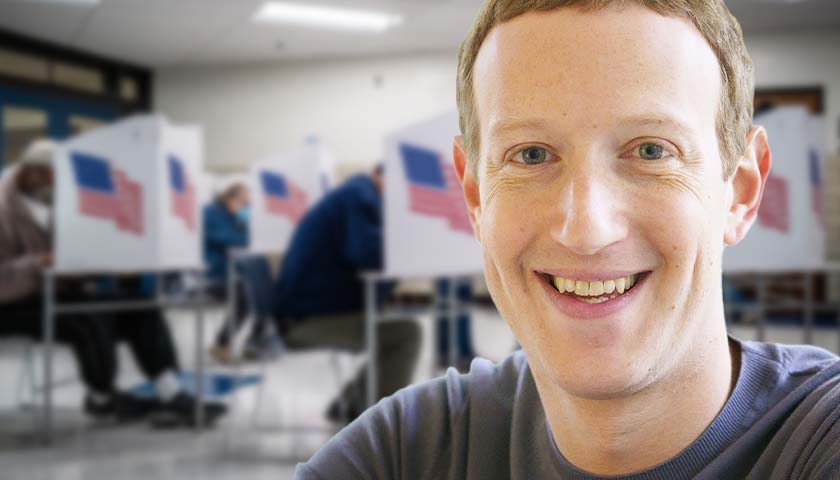U.S. Sen. Marsha Blackburn (R-TN) on Monday wrote a letter urging the CEO of Snap, Evan Spiegel, to take action to protect children from sexual predators and being exposed to explicit adult content while using Snapchat.
“In 2019, our children are living an unprecedented amount of their young lives online,” Blackburn said in a press release. “Snap must be transparent with users about the steps they take to ensure their application is used responsibly and not taken advantage of by those who wish to do innocent children harm.”
Blackburn gave Spiegel a deadline of July 29 to respond to a list of questions.
A Snapchat spokesperson told Roll Call that it has a zero tolerance policy to these concerns.
“We’ve designed Snapchat with no browsable public profiles, and by default you can’t receive a message or share location with someone you haven’t added as a friend on the app. We work hard to detect, prevent and stop any abuse on our platform, and continue to work proactively with governments, law enforcement and best in class safety organizations to ensure that Snapchat continues to be a positive and safe environment,” said the spokesperson on Monday.
U.S. Sen. Josh Hawley (R-MO) recently introduced legislation to stop video platforms such as YouTube from recommending videos featuring children, according to a story by Breitbart. Hawley said that the bill would stop YouTube from “catering to pedophiles.”
Blackburn’s letter follows in its entirety:
Dear Mr. Spiegel:
I write to urge your company to take action to prevent more children from being exposed to sexual predators and explicit adult content while using Snapchat. Your company reported $1.18 billion in revenue in 2018, thanks in large part to a growing base of 16.4 million teen users. Yet Snapchat’s app rating—rated age appropriate for children ages 13 and up—fails to provide parents with adequate warnings about the platform’s dangers. The Wall Street Journal recently highlighted some of the ancillary risks associated with allowing such young children on the platform. “13 has become the internet’s age of adulthood,” when it should instead be 18.
Just as teens flock to Snapchat, so do criminals seeking a platform that enables easy contact with potential minor victims. In 2017, a California man was arrested after coercing six young boys, between the ages of 12 and 15, living in Illinois, Texas, Georgia and Tennessee, to send sexually explicit videos of themselves on Snapchat. Earlier this year, a Massachusetts man was charged with child sexual exploitation after he was caught posing as a teenage girl on Snapchat to extort nude photos of other minors.
Snapchat’s disappearing videos are a child predator’s dream. Due to the auto-deleting feature, which allows individuals to set the erasure of photo evidence within seconds, predators are far more likely to use Snapchat than other platforms. Its public location-sharing feature poses risks that are even more pernicious. Snap Map lets children share location in real time with users on their friend list. But if their location is left in public mode, Snap Map can reveal the location of gullible child users to complete strangers, along with their Snap video feed.
Child predators and the prevalence of pedophilia on Snapchat, however, are only part of the problem. While using Snapchat, minors are provided with suggestive and inappropriate material through both the “Discover” section and subscription channels. Even if minors are not exposed to sexual predators, they are exposed to unsolicited, provocative images via advertisements, channels, and search results generated by Snapchat itself.
I am concerned that Snapchat’s age ratings in the Apple App Store and Google Play Store fail to adequately warn parents and unsuspecting minors of the material they will encounter. Although Snapchat’s policies adhere to the Children’s Online Privacy Protection Act of 1998, they no longer sufficiently protect our children in the new social media age.
The National Center on Sexual Exploitation is calling for the creation of an independent review board to ensure that modern smartphone apps like Snapchat are rated correctly, in order to better inform parents’ decisions to allow their children to use these apps. This independent board would function similarly to the Entertainment Software Rating Board, which monitors and rates video games, and the Motion Picture Association of America, which does the same for movies.
In light of these suggestions, I would like to know what Snapchat is doing to protect minors from predators and shield them from age-inappropriate material. Please provide a written response to the following questions by July 29, 2019:
1. What is Snapchat doing to ensure that predators do not assume false identities in order to elicit sexual or provocative images from minors?
2. What policies has Snapchat considered as it pertains to regulating the advertisements seen by minors, the channels that appear in the “Discover” section, and the prohibitions on minors from subscribing to pornographic channels? Please address each of these three areas separately.
3. Does Snapchat intend to provide parents with more controls to monitor what their minors send, receive, and view on Snapchat? If so, how? If not, why not?
4. Does Snapchat intend to change its app descriptions on the Apple App Store and Google Play Store that will more accurately describe the availability of frequent and explicit sexual content and nudity on the platform? If so, how? If not, why not?
5. Does Snapchat’s revenue model and user growth depend on attracting young users under the age of 18?
Thank you for your attention to these important issues. I look forward to your response.
Sincerely,
Marsha Blackburn
United States Senator
– – –
Jason M. Reynolds has more than 20 years’ experience as a journalist at outlets of all sizes.





